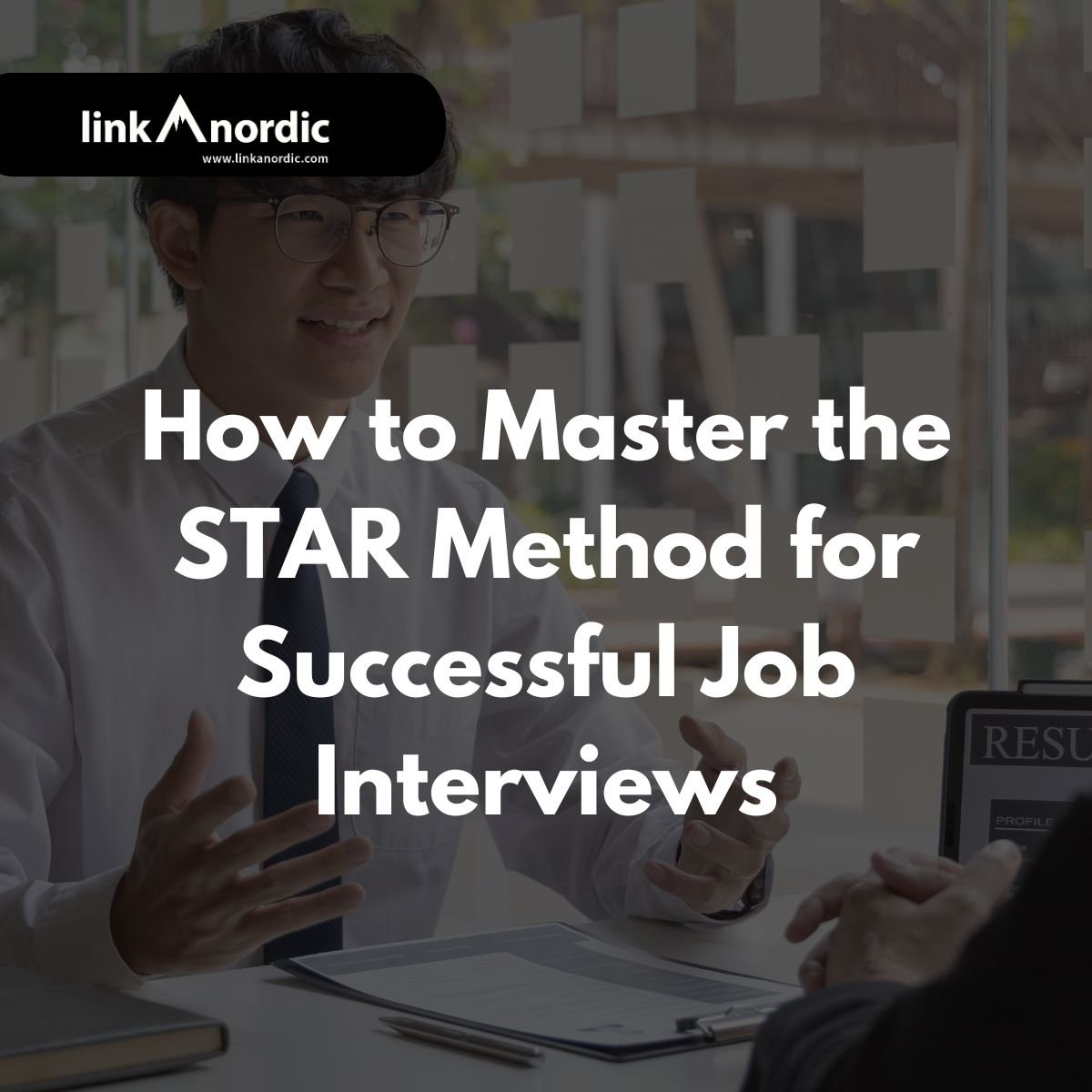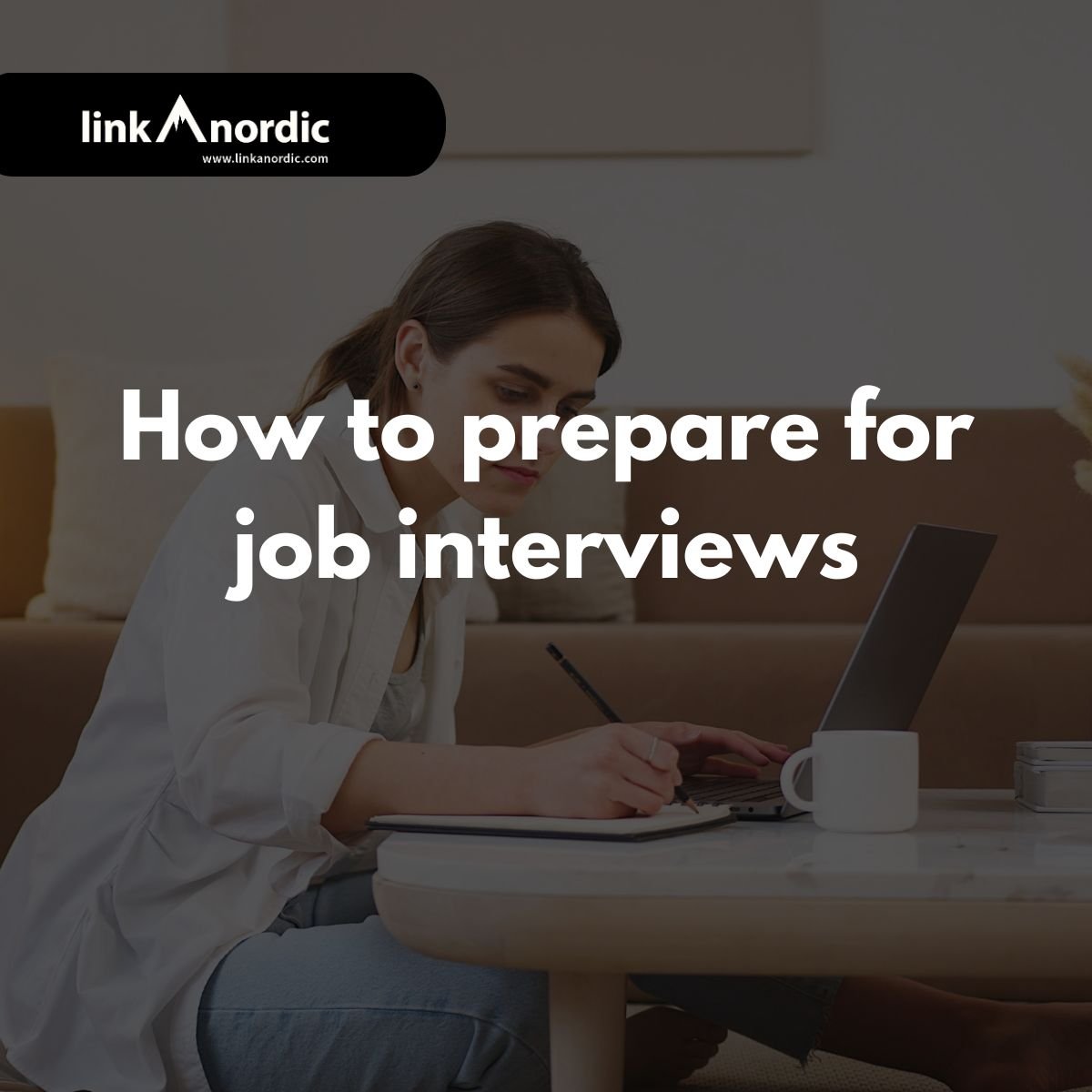20 common interview questions!
Whether you are currently working or unemployed it’s always wise to stay prepared for common interview questions. We have therefore gathered 20 of the most common interview questions with answering tips to help you stay prepared and ace your job interview! 🤘
1. Tell me about yourself.
Being asked about yourself is one of the most common questions a recruiter will ask you. The question helps recruiters to understand your personality, your core skills and your ability to respond to an unstructured question.
Answer Tips!💡
Use the job description to prepare.
Make sure you are honest, concise and engaging.
Try to have a compelling story about your past experiences and tie your story to the hiring company’s needs. It helps to highlight the most required skills that you have.
2. Why do you want to work here?
Recruiters want to understand what prompted you to apply for this job. They don’t want candidates who are indifferent to where they work. Instead, they want someone who offers very specific reasons for why they want this job.
Answer Tips!💡
Make it about them first.
Show you’ve done your research.
Use this as a key opportunity to outshine the competition.
Speak from the heart.
3. What is your greatest strength?
Are you able to be confident and humble at the same time? The recruiters want to understand how self-aware and honest you are. This question also shows how well you align your strengths to the role you are applying for.
Answer Tips!💡
Be as authentic as possible. Don’t make up strengths that you think the recruiters wants to hear.
Give examples, tell a story about a work experience.
Make sure that the strengths you share are aligned to the role you want.
4. What is your greatest weakness?
The recruiters are evaluating whether your weaknesses will get in the way of doing the job. They are looking to understand whether you’re committed to learning, growing and improving.
Answer Tips!💡
Pick a weakness that is not too relevant to the job you are applying for.
Make sure you show self-awareness and personal accountability.
It’s good to be honest about what you’re not great at.
Share what you are doing to actively improve on this weakness.
5. Tell me about a time you showed leadership.
Recruiters want to understand your capacity to step up and handle potential tough situations that may arise in the workplace. They want to know if you are able to lead with good judgement.
Answer Tips!💡
Describe a situation where there was a lack of leadership.
Emphasis on the word “lead” to help describe the actions you took.
Make sure to give credit to your ‘leadership skills’ when explaining the positive results.
6. Tell me about a time you were successful on a team.
Recruiters are trying to understand if you possess any “soft” skills which are in high demand and can make people successful in their jobs. Have you helped a team move through a challenge?
Answer Tips!💡
Make sure to describe a problem that arose with a team.
It’s important to outline your key actions with the team.
Explain the positive result based on the work you did.
Give credit to your teamwork skills, e.g. strong communication and interpersonal skills.
7. What would your co-workers say about you?
The recruiters want to know if you’ll fit in with the current team. Answering this question can also help you highlight your strengths without feeling like you’re bragging about yourself.
Answer Tips!💡
Make sure you share something that relates to the job description and try to back it up with an example.
If you have any recommendations/referrals try to look at them for a few ideas.
Be concise and confident.
Remember it’s ok to shine!
8. Why do you want to leave your current role?
Recruiters are interested in your honesty when things haven’t worked out, after all, we’re only human.
Answer Tips!💡
Remember, recruiters want to hire people who are running “to“ a role as opposed to running “away” from a role.
It’s very important that you don’t talk negatively about past roles or former bosses - no one wants to work with people who complain.
Try to be gracious when things haven’t worked out in the past.
Share some of the ways you’re working on improving.
People tend to give each other second chances when hunger and motivation is demonstrated, it’s in our DNA!
9. Can you explain your employment gap?
If a recruiter asks this question don’t be alarmed, it’s a good sign that recruiter is interested in learning more about the gap and to understand whether you’re still going to be a good fit for the role, even with the gap.
Answer Tips!💡
If you have a gap in your employement, expect that they will ask about the gap.
Be prepared, answer honestly and strategically.
Be concise and confident.
It’s ok to shine a light on the good that came out of that time.
10. Why should we hire you?
Are you a persuasive person? This question tests exactly that! The recruiters are looking for factual and compelling answers. They want to see if you can make a confident and calm case for yourself, even if they some times are acting skeptical.
Answer Tips!💡
Be prepared for this question and make sure to ask yourself why you think you’re qualified.
Start with the three or four best reasons you’ve got.
Tell them how you’d fit in with their company’s mission, vision and how they work.
It helps to cite results, credentials, and other people’s praise.
Try to be concise and remember, it never hurts to invite follow-up questions at the end.
11. Tell me about something you’ve accomplished that you are proud of.
If you have an interview be prepared for questions related to your past experience. This question is common during interviews and it helps recruiters understand how you define a professional success. Your aim should be to focus on the impact and result.
Answer Tips!💡
Describe the situation and problem that existed before you took action.
Make sure you talk about how you took initiative to solve the problem.
Explain why you are proud of the result and what would/could have happened if you hadn’t stepped in.
12. What are your salary expectations?
Sooner or later you will be asked this question by the recruiters. They want to understand your salary requirements and to see if it’s aligned to what they have budgeted for the role.
Answer Tips!💡
Do some research on what similar roles pay.
Give them a salary range instead of starting with a specific number.
Let them know there’s room to negotiate.
13. What do you like to do outside of work?
The recruiters want to understand if you’re going to fit the culture, be a team player and enjoyable to have in the office.
Answer Tips!💡
Keep it short and simple.
Avoid topics like religion and politics.
It’s ok to share your favorite hobby or volunteer work.
14. Where do you see yourself in 5 years?
No one knows what the future holds just ask the people who were asked this question back in 2015. When recruiters ask this question it’s because they want to know how serious you are about your career and whether your goals match the company and the vacancy goals.
Answer Tips!💡
Tell them what you hope to accomplish.
It helps to break the answer down in two to three year chunks.
Try to avoid mentioning specific job titles.
Make sure your answer is specific to the particular company and role.
15. Tell me about a time you failed or made a mistake.
Let’s face it errors are inevitable regardless of who you are. Self-awareness and learning from past experiences is what really matters.
Answer Tips!💡
Try to use an honest example that’s believable.
Explain why it was a mistake.
Make sure you talk about what you’ve learned and any steps you’ve taken to show that you’re “working on it”.
16. Tell me about a time you disagreed with someone.
Conflicts and disagreements is a common, inevitable part of life. When asked this question recruiters want to understand if you are able to work through those tensions in a respectful way.
Answer Tips!💡
Try to pick an example involving business practices.
Avoid personal disagreements.
Make sure you do not sound bitter or angry.
Did the conflict led to a good outcome? Let them know!
17. Tell me about a time you worked with a difficult person.
Difficult people are everywhere and explaining how you’ve been able to handle a challenging person in a mature way demonstrates your ability to manage difficult moments successfully.
Answer Tips!💡
Try to describe how the person was “difficult”.
Think about the negative potential impact this could have caused and explained it.
Make sure you talk about how you approached the person and the situation.
Highlight the positive result your efforts created.
18. Tell me about a time you had to handle pressure.
Recruiters are interested in understanding how well you handle stress.
Answer Tips!💡
Be clear about the project goal(s).
Make sure you mention how you managed to get everything done. Did you involve colleagues? Update tasks?
It’s important to establish that you’re a strong person who can handle the heat.
19. Tell me about a time you had to learn something quickly.
Are you able to adapt and learn new skills or processes? This question helps recruiters understand if you feel comfortable with rapid learning and how well you handle and manage information.
Answer Tips!💡
Share an example and make sure you show why it was challenging.
What did you learn? Share the result!
20. Do you have any questions for me?
This question helps recruiters understand if you’re genuinely interested, prepared and curious about the company and the role.
Answer Tips!💡
Remember, people hire people that they like and who seem genuinely interested in the role!
Make sure you are prepared with 3-5 thoughtful questions.
Ask questions that show you’re engaged and interested in the company and the role.
Try to avoid no-brainer questions or ones related to salary / benefits.
By preparing thoughtful answers to these common interview questions, you'll be better equipped to make a positive impression. Ready to put your skills to the test? Explore our latest job opportunities and take the next step in your career.





































